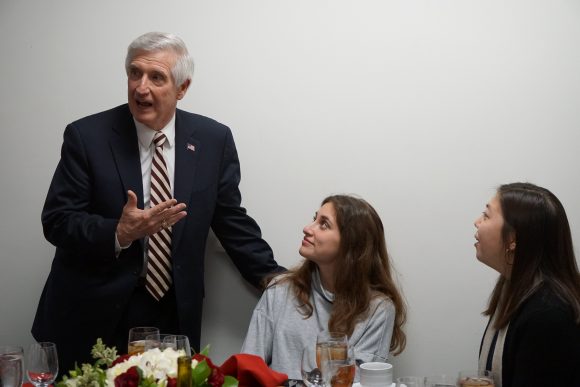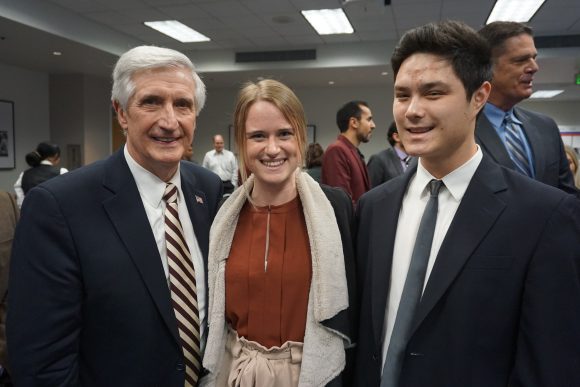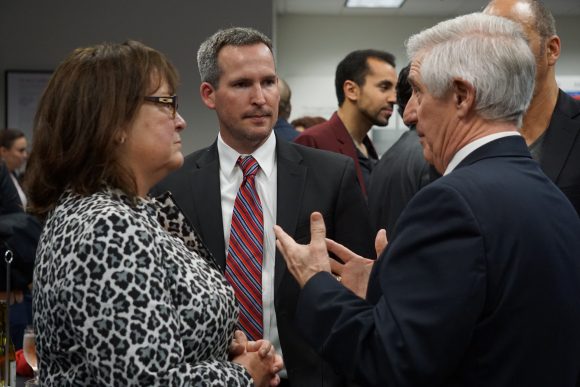20th Anniversary Series: Andrew Card, White House Chief of Staff to President George W. Bush The presidential “gatekeeper” shared from his experiences in the White House
March 25, 2019
From Special Assistant to President Ronald Reagan, U.S. Secretary of Transportation and Deputy Chief of Staff to President George H. W. Bush, and Chief of Staff to President George W. Bush, Andrew Card has more experience as a member of the White House executive staff than almost anyone. As Chief of Staff for over five years, Card is the second longest tenured White House Chief of Staff in history, and the longest serving since President Eisenhower’s chief of staff, who served just under six years. Speaking at the Argyros School’s 20th Anniversary Distinguished Speaker Series, Card emphasized that the values instilled during his upbringing formed him into the leader he is today. As Card moved up throughout his career, he always had his grandmother’s reminder close by: “The most important word in the U.S. Constitution is the first word: We.”
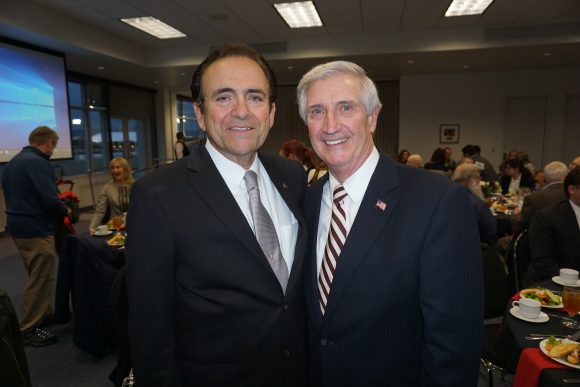
Dr. Richard Pitts ’70 and Andrew Card
A native of Holbrook, MA the at-capacity audience was surprised by Card’s opening remark, “Chapman has been a special place I’ve watched for a long time from the east coast. I support Chapman because I saw Chapman support Ricky Pitts.” As it turns out, Card grew up with Dr. Richard Pitts ’70, an alumnus of Chapman University, and the two remain friends to this day. Card’s connection to Chapman also extends to our namesake George Argyros ’59, who was
appointed United States Ambassador to the Kingdom of Spain and Principality of Andorra by President George W. Bush from November 2001 to November 2004. His service coincided with much of Card’s time as Chief of Staff. Card credited ambassador Argyros for securing our ally relationship with Spain during a crucial point in world history, just after the terror attacks of September 11 and in the aftermath of Spain’s 2004 terror attack.
George L. Argyros was an instrumental figure in helping Spain get through the attacks and recover as a nation, providing resources and other help as the United States Ambassador.
Card discussed his responsibilities as the White
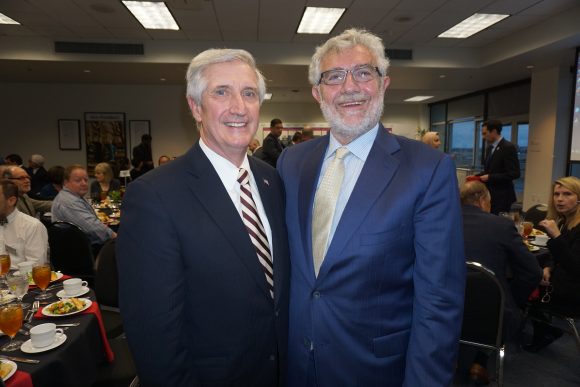
Andrew Card and President Struppa
House Chief of Staff, and how the role required him to make huge decisions on September 11, 2001 and every day following. The most important thing Card paid attention to as Chief of Staff was the President’s state of mind. He made every effort to give the President support, even in the subtlest of ways.
On that day in September he was tasked with interrupting the President’s visit to an elementary school. “A second plane hit the second tower. America is under attack,” Card told the President before quickly backing away so nearby media wouldn’t hear if the President asked a question in reply. After delivering the news, Card had the response team on the phone and ready when President Bush left the school.
The attacks changed the trajectory of the world, the Presidency and Card’s time as Chief of Staff.
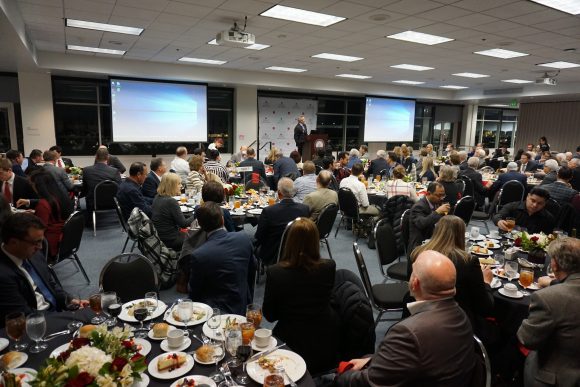
Looking forward, Card challenged the students in the audience to “Make the ‘we’ as inclusive as it can be for our great country.” In today’s world “we” includes more individuals than when the constitution was written, and it can still be improved and expanded.
“Democracy is great, it is not perfect,” he said. “It was not designed to be perfect.” Perfection is great to work toward but requiring perfection will make you irrelevant because you will never get there. Instead Card encourages future politicians to “bring perfection to the debate but have the courage to accept perfectly good.”
Card stayed late into the evening to meet attendees, take pictures and chat more, giving his full attention to each person he met.
